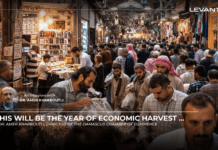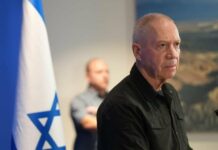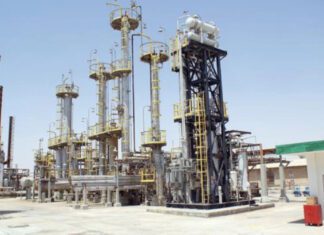An Interview with Preparatory Committee Spokesman Hassan al-Daghim

Levant 24 (L24) speaks with Hassan al-Daghim, a Syrian Islamic researcher, writer, and influential revolutionary figure, about his role in the Preparatory Committee for the 2025 Syrian National Conference (SNC). As a key player in efforts to unite various factions, al-Daghim helps shape a collective vision for Syria’s future.
With a background in Islamic scholarship and education, he became actively involved in the Syrian revolution, advising revolutionary forces and advocating for political guidance. Known for his outspoken criticism of extremism and warnings of the infiltration of extremist ideologies within the revolutionary ranks, al-Daghim has written extensively on their impact and the need for a balanced, inclusive approach to Syria’s future.
Al-Daghim remains a firm advocate for national dialogue, transitional justice, and civil peace. In this interview, he shares insights on the challenges ahead and the importance of holistic representation in rebuilding Syria.
_______________________________
L24: As a member of the Preparatory Committee, what are your specific responsibilities in organizing the Syrian National Conference (SNC)?
Hassan al-Daghim: “The Preparatory Committee’s mission is to manage, organize, and improve communication among Syrians, facilitating the exchange of viewpoints, working papers, and the organization of specialized workshops. The goal is to structure discussion topics, collect and analyze them, and reach conclusions that reflect the majority of opinions and ideas presented.
“In short, the committee does not determine the topics of discussion among Syrians, nor does it direct them. Rather, it plays a role in assisting and facilitating the organization and outcome of this dialogue to ensure productive results.

“The role of the spokesperson for the Preparatory Committee, or any member speaking on its behalf, is based on the principle of transparency. The committee does not hold closed meetings, nor does it meet with citizens in secrecy. There are no hidden agendas.
“Instead, its work revolves around preparation, facilitation, and visits, all of which are open to public discussion and opinion. Transparency should be a standard and exemplary principle in any national dialogue.”
L24: What are the main objectives of the Syrian National Conference?
Hassan al-Daghim: “At present, there are no predetermined objectives. However, in times of political transition, a national dialogue is essential for citizens to come together and discuss the future of their country. It is crucial for people to express their opinions on shaping the authorities that will govern their nation.
“Ultimately, the people are the source of authority. The Syrian National Conference will help bring together Syria’s elite from different backgrounds and specializations to develop clear working papers and pathways.”
L24: Will the conference result in a new constitutional framework or a transitional political agreement? If so, how will it be implemented?
Hassan al-Daghim: “There is no doubt that issues such as transitional justice, economic vision, national unity, sovereignty, stability, disarmament (limiting weapons to state control), security, public welfare, and constitutional development are all critical national concerns. These issues have already been addressed in the early phases of local initiatives across Syrian provinces. However, the outcome of the conference will be subject to public discussion.

“Regarding constitutional development, it is unequivocal that the constitution is the supreme framework—the umbrella for all laws and governance. Currently, the country is experiencing a constitutional vacuum due to the suspension of the 2012 Constitution. There is no doubt that the situation may require a transitional constitutional declaration until suitable political, economic, and social conditions allow the Syrian people to elect a national constituent assembly to draft a permanent constitution for the country.”
L24: How is the committee working to ensure fair representation of all political and social actors, as well as civil society organizations, in the dialogue process?
Hassan al-Daghim: “The principle of sectarian and ethnic quotas is detrimental to the nation. Therefore, the committee does not base its work on dividing society along sectarian, ethnic, or stereotypical lines.
“However, through the committee’s engagement with Syrian citizens across the country, the diversity of ethnic, religious, cultural, professional, and human aspects of society becomes evident.

“The variety of perspectives and working papers will highlight the presence of a diverse Syrian elite across all societal dimensions. This diversity will be taken into account in the General Conference and the subcommittees formed from it.”
L24: How does the SNC plan to engage ordinary Syrian citizens in the process and ensure that the final outcomes reflect their aspirations?
Hassan al-Daghim: “For example, regarding the fifth question in the Idlib session, citizens living in tents were heard, and their top priority was rebuilding and ensuring the return of displaced people to their homes—especially in the completely destroyed rural and urban areas such as central and southern Idlib countryside, eastern Aleppo neighborhoods, parts of Homs, Eastern Ghouta, Darayya, and Jobar. A significant number of people live in makeshift camps and tents that lack even the most basic living conditions. Their primary concern is returning to their homes.”
L24: Is the committee currently engaging or planning to engage in dialogue with international bodies? How does it balance external support with maintaining Syrian ownership of the process?
Hassan al-Daghim: “Our experience with international organizations has not been encouraging. The United Nations spent ten years, and frankly, even the Constitutional Committee it formed was ineffective. It was all empty rhetoric—meetings for the sake of meetings, displays of power, without making any real progress. There has been no successful international initiative in the Syrian case.
“There may be potential to draw lessons from such experiences rather than rely on them. However, in the context of transparency in the SNC’s work, there are no barriers or restrictions preventing communication between international organizations and the national dialogue process.”








